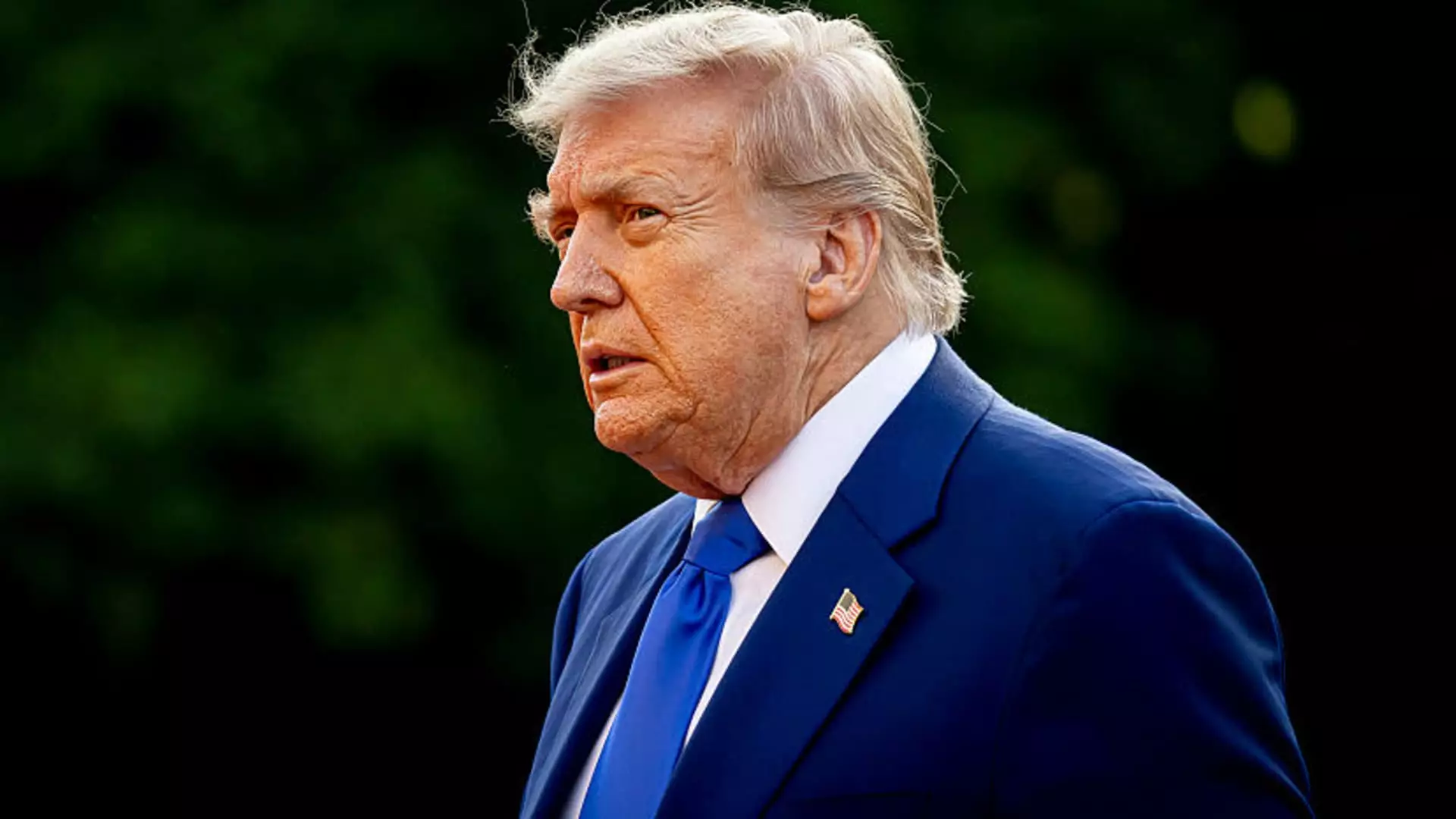In what has become a spectacle of unpredictability, President Donald Trump’s approach to tariffs and international trade negotiations raises serious questions about the effectiveness and coherence of American trade policy. Recently, White House Press Secretary Karoline Leavitt indicated that key deadlines for trade deals are hardly set in stone, leaving the door open for potential extensions without the guided rationale of strategic negotiation. This lack of commitment to established timelines reflects a broader pattern of impulsiveness that has plagued the Trump administration, oftentimes leading to confusion in the markets and eroding confidence amongst global trade partners.
The president’s original threat in late May to impose a staggering 50% tariff on the European Union was ostensibly grounded in a desire to reclaim advantages for American workers. However, what ensued rarely strayed from the realm of empty threats devoid of thoughtful economic strategy. By temporarily postponing these tariffs until July 9 upon the request of European Commission President Ursula von der Leyen, Trump demonstrated not just an inclination to bend but also the administration’s tendency to delay without substantive plans. This is not mere negotiation; it is an ongoing performance that leaves onlookers wondering what the ultimate stakes truly are.
The Illusion of Prosperity Through Tariffs
Supporters of Trump’s tariff policies often argue that they are necessary to protect American jobs and manufacturing; yet, the evidence suggests otherwise. While the administration’s assertion that trade negotiations could lead to countless deals within 90 days built a false sense of urgency, only agreements with China and the UK have materialized thus far, both remaining prevalent in the realm of vague frameworks rather than concrete, enforceable contracts. The administration seems to be operating under the illusion that simply raising tariffs can rectify the trade imbalance without considering the actual economic repercussions. Increasing tariffs becomes more of a blunt weapon rather than a calculated strategy that promotes genuine improvement in trade relations.
Economists have long warned about the negative effects of tariffs, suggesting that they could backfire by raising costs for American consumers and prompting retaliatory measures from other countries. It is a fundamental flaw of the current strategy that incentivization of negotiation is not afforded proper weight. The real question remains: with impending deadlines looming and trade talks leading to little more than speculation, what happens when companies begin to pull back on investments, concerned about the uncertainty that these tariffs introduce? A decision made based on emotional rhetoric rather than logical economic frameworks can only serve to heighten tensions rather than resolve them.
The Need for Thoughtful Policy Over Impulsivity
With the expiration of unilateral tariff measures on July 8 putting immense pressure on the Trump administration, the suggestion that deadlines could possibly be extended has been prioritized over any genuine progress in negotiations. Economic advisers believe that countries engaged in “good faith” discussions may be spared from higher tariffs, but this risks turning tariff levies into political tools rather than economic measures. How can other nations be expected to engage earnestly in negotiations if they see that the parameters can shift at the whims of one individual?
As such, the apparent willingness to prolong delays on trade deals sends a troubling message—not just to foreign leaders but to American businesses waiting for clarity, unable to plan for the future when faced with such inherent unpredictability. Investors responded positively to Leavitt’s comments, but does this fleeting optimism conceal a more profound anxiety about future economic stability?
This chaotic approach to trade policy not only undermines the credibility of American leadership but also represents a struggle to achieve long-term, sustainable growth. Creative and collaborative frameworks are what the global economy demands today, rather than clinging onto outdated notions of economic nationalism that prove ineffective in our interdependent world. Rational trade policies are a necessity, and unless the Trump administration pivots toward negotiation infused with genuine insight and compromise, American workers might soon find themselves caught up in a tariff storm that promises more pain than gain.


Leave a Reply